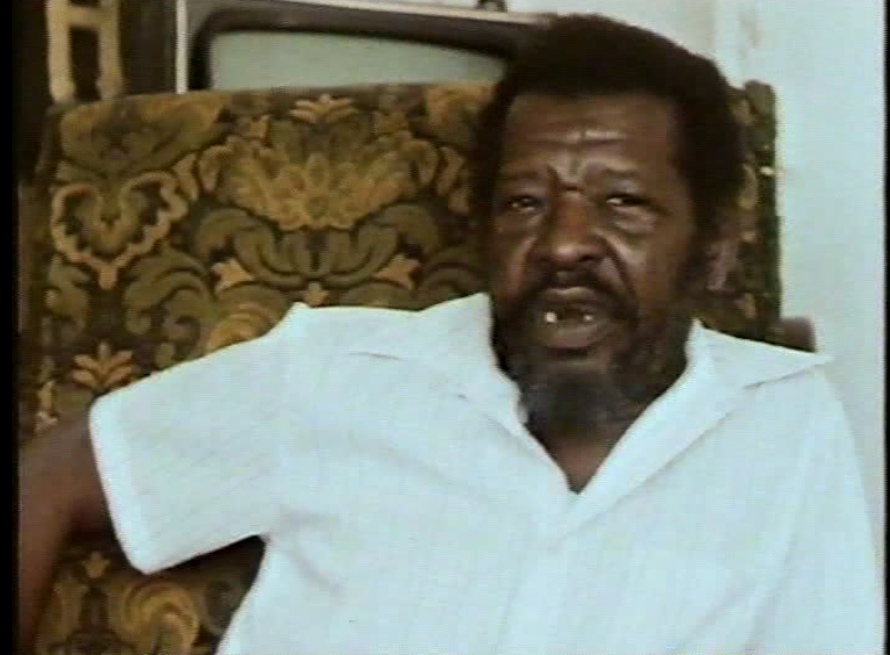Hubert 'Baron' BakerWritten by Jamillah Harris
Hubert ‘Baron’ Baker was born in Jamaica in 1925. He arrived in Britain in 1944 when he joined the RAF as a policeman and continued to live in London for the remainder of his life. Baron Baker was described as an outspoken and charismatic man and strove throughout his life to combat the racism and inequality faced by black people living in Britain. He played a significant role in the famous 1958 race riots in North Kensington. At the age of 19, Baron Baker left Jamaica to join the RAF, feeling a strong affiliation with Britain, ‘The Motherland’, and eager to join in the fight for freedom against Hitler. Upon his arrival, he noticed that many Britons had never seen black people but claimed that his first experience of racism was in a pub in Gloucester when the American G.I.s serving with them believed that the black servicemen should not be allowed to join them in the pub. Baker, considering himself to be British and entitled to the same respect as white soldiers, refused to accept the American’s racist behaviour. He and his fellow British comrades fought to ensure this behaviour would not continue. After the Second World War, the British government revealed plans to forcibly send back Caribbeans that had served in the war. Angered by these plans and insisting that the contributions of black men and women in the war be acknowledged, Baron Baker resisted, threatening to take the matter to court. In order to avoid confrontation, the air force authorities agreed to allow the Caribbean servicemen and women to remain in Britain. When the Empire Windrush arrived in London from the Caribbean, Baron Baker was there to welcome the 492 West Indian migrants hoping to begin new lives in Britain. Baker persuaded Labour MPs to open an air raid shelter in Clapham South as temporary accommodation for the new arrivals. Because of this, many of the migrants were able to find employment and housing in nearby Brixton. Due to his role in assisting so many Caribbeans to settle in the area, Baker was regarded as ‘The man who discovered Brixton.' Despite his proud British sentiment and respectable effort during the war, Baker struggled to find employment and housing due to racist landlords and employment restrictions. He finally settled in Notting Hill Gate, where he continued to resist racism from the local residents. The growing presence of Caribbean migrants in the local area and the prevalence of racist public figures such as fascist politician Oswald Mosley, who campaigned to repatriate Caribbeans living in Britain, fuelled violent attacks on black people living in North Kensington. People were being attacked by ‘Teddy Boys’ and other white gangs in the streets and in their homes. Baron Baker and his friends recognised the need for resistance and worked collectively to protect members of the black community from racist attacks. Despite the authorities advising black people to stay indoors, Baker and other members of the community decided to fight back, refusing to tolerate the violent racist behaviour they were subjected to. Operating from their ‘headquarters’ Totobag’s Cafe, a black community centre at 9 Blenheim Crescent, Baron Baker and his friends operated a ‘neighbourhood watch’ style service, offering to assist any members of the community in arriving home safely and protected houses from attacks from white gang members. The struggle escalated when Majbritt Morrison, a white Swedish woman was arguing in public with her black Jamaican husband Raymond. Seeing this, white racists attacked Raymond in an attempt to ‘save’ Majbritt despite the fact that she did not want to be saved. The fight intensified when black onlookers joined to defend Raymond. Hearing about this incident angered many racists that wanted to get black people out of the local area. Soon after, white rioters planned an attack on number 9 Blenheim Crescent, and number 6 where the West Indian women would gather. Using his military experience, Baron Baker and his friends prepared to fight back. A mob of hundreds of angry, white rioters could be seen making their way to Blenheim Crescent; threatening to lynch and burn the black people living in the area. Those at number 9 fought back using Molotov cocktails - handmade firebombs - and successfully chased the rioters away. Baker was arrested after these events but his comrades continued the battle - which was later coined as the Battle of Blenheim Crescent. As well as physically combating the racist treatment of black people living in Britain, Baron Baker founded an organisation called the United Africa-Asia league, participated in anti-fascist groups, initiated campaigns for better housing for West Indian people, and spoke at Speakers Corner, Hyde Park about issues experienced by black people. Baker lived the remainder of his life in Notting Hill; he died in 1996. His funeral was held in Kensal Green Cemetery; where he was remembered as a respected and important member of the community.
0 Comments
Leave a Reply. |
AuthorContent from the Waking the Dead digital media team and volunteers. Archives
April 2017
Categories |
- Home
- The Project
-
Key Figures
- Andrew Ducrow
- Anthony Perry
- Anthony Trollope
- Baron Baker
- Charles Babbage
- Count Suckle
- Duke Vin
- James Barry, Dr
- Feargus O'Connor
- Frank Critchlow
- Harold Pinter
- Howard Staunton
- Isambard Kingdom Brunel & Marc Isambard Brunel
- George Bridgetower
- Jind Kaur
- Joe Strummer
- Kate Meyrick
- Kelso Cochrane
- Michael Abbensetts
- Pearl Connor
- Russ Henderson
- Thomas Wakley
- Wilkie Collins
- William Makepeace Thackeray
- The Reformers Memorial
- The Dissenters' Chapel
- The Exhibition
- Gallery
- Waking the Dead Blog
- Contact
- Links


 RSS Feed
RSS Feed
